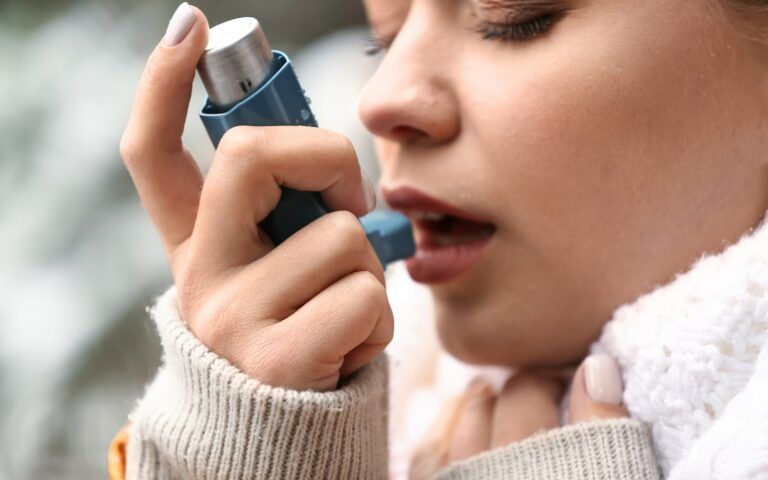Potential Solutions For Oral Health Concerns From Asthma

Having asthma means doesn’t just mean respiratory problems. For some, their asthma also means that it makes it harder for them to care for their teeth. Constant inflammation attacks, continuous build-up of mucus, and restricted airways can cause problems for the mouth’s internal microbiome of bacteria, leading to more harmful species of bacteria such as the streptococcus mutans forming more easily. With a whole slew of dental problems on the horizon, we’re here to help better inform you about the various dental issues that occur for those with asthma and what you can do to better protect your teeth and gums.
Oral Solutions For Those With Asthma
Asthma can not only make it harder for you to breathe but can be costly to your health. The coughing, wheezing, and tightness in the chest are often involuntary reactions to outside influences, such as allergies, stress factors, and other pollutants throughout the air. For those with this condition, it can only be managed through medications, controlling asthma by understanding its triggers, and other preventative methods. However, those preventative methods often don’t include ways to protect your body from other varying factors that are affected by asthma, including oral health problems.
So, why do oral problems occur more frequently for those with asthma? It’s often due to the inflammatory response that occurs within the lungs. As the airway vessels inflame, it often makes it harder for the mouth to manage saliva production. The European Journal of Dentistry cites that for asthma patients, saliva production becomes harder to maintain due to the effects of certain medications. Having persistent asthma attacks can also inhibit saliva production due to constant inflammation throughout the lungs and blood vessels. When saliva depletes, it leads to a heavier dose of bacteria growth. This bacteria growth can be impossible to control when asthma’s present and can thus lead to more oral issues, including dry mouth, thrush, halitosis, and oral sores.
So, what are the best solutions for caring for your teeth and gums? If you have asthma, you can take some steps to help care for your teeth and reduce the risks of oral issues:
- Drinking-Water: Drinking water is one of the best ways to help prevent the onset of oral issues because water helps replenish the mouth and increase saliva production, especially after the onset of an asthma attack.
- Rinsing With Water: If you take prescription medication for your asthma, rinsing out your mouth with water after taking your medication can help reduce the side effects of your medication and help increase saliva production.
- Brush and Floss: Doing your routine every day is a great way to protect your teeth, but it’s even better if you have asthma. By removing the plaque and bacteria present, it can help keep your mouth free from cavities and gum disease.
Talk To Your Dentist About Your Asthma
With a whole bunch of dental problems on the horizon, many of those with asthma don’t have many resources for caring for their teeth. Speaking with your dentist about your asthma and the side effects of your medication can be a great way to help manage your condition and give you a better, healthier smile overall.

Recent Comments